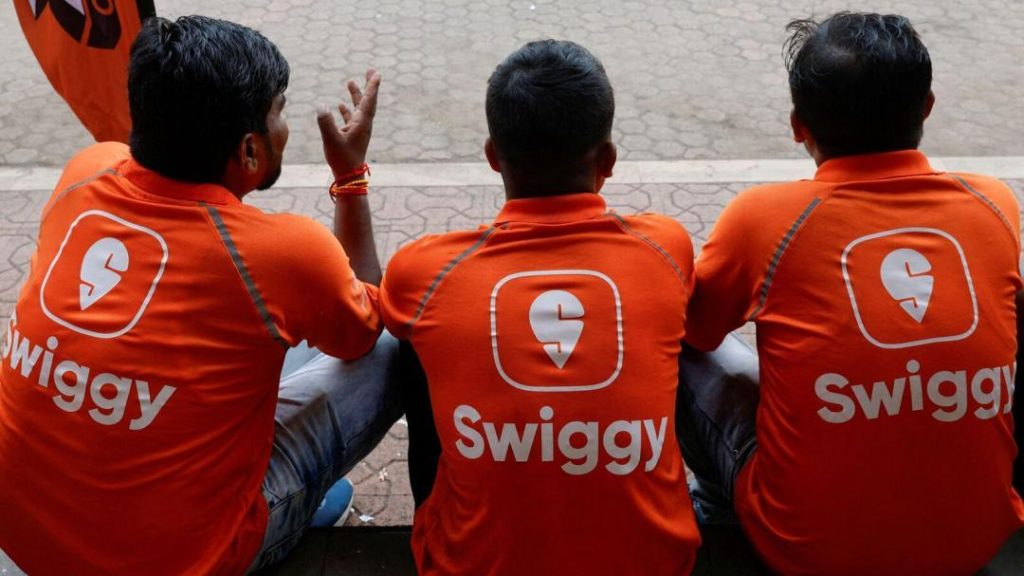
Swiggy Faces ₹158 Crore Tax Demand Over Cancellation Fees
In a recent development, food delivery giant Swiggy has been slapped with a massive ₹158 crore tax demand by the Income Tax Department for the fiscal year 2021-22. The demand is allegedly related to cancellation charges paid to merchants, which the tax authorities claim violates tax provisions. Swiggy, however, plans to appeal the demand, citing a misunderstanding of tax laws.
This development has significant implications for the digital economy, particularly in the context of cancellation fees. Experts suggest that the case may set a precedent for how such fees are taxed in the future.
Background
For those who may not be familiar, Swiggy is a popular food delivery platform that connects customers with local restaurants and food establishments. The company’s business model relies heavily on cancellation charges, which are fees paid to merchants for orders that are cancelled or not fulfilled due to various reasons.
In FY 2021-22, Swiggy reportedly generated significant revenue from these cancellation charges, which were deposited into the company’s accounts. However, the Income Tax Department has now demanded that Swiggy pay taxes on these earnings, citing alleged violations of tax provisions.
The tax demand is reportedly based on the Income Tax Act, which requires businesses to pay taxes on revenues earned from providing services. In this case, the tax authorities are claiming that Swiggy’s cancellation charges constitute a form of service revenue, and therefore, are subject to taxation.
Swiggy’s Response
Swiggy has responded to the tax demand by claiming that it is a misunderstanding of tax provisions. The company has stated that the cancellation charges are actually a form of commission paid to merchants for their services, and not a revenue stream earned by Swiggy.
In a statement, Swiggy said, “We are reviewing the demand and will take necessary action as per the law. We believe that the demand is based on a misunderstanding of the tax provisions and we are confident that it will be resolved in our favor.”
Experts’ Take
According to tax experts, the case may have far-reaching implications for the digital economy. “This case highlights the need for clarity on how cancellation fees are taxed in the digital economy,” said Rohan Shah, a tax expert. “The Income Tax Department’s demand may set a precedent for how other companies are taxed on similar revenue streams.”
Another expert, Anirudh Agarwal, added, “The tax authorities’ view is that Swiggy’s cancellation charges are a form of service revenue, which is subject to taxation. However, Swiggy’s argument is that these charges are a form of commission paid to merchants, which is not taxable. The Supreme Court may need to intervene to clarify the matter.”
Impact on the Digital Economy
The implications of this case are significant for the digital economy, particularly for companies that rely heavily on cancellation fees. “This case may force companies to re-evaluate their business models and tax strategies,” said Pranjal Sharma, a digital economy expert. “Companies may need to adopt more transparent and compliant tax strategies to avoid similar demands in the future.”
Conclusion
In conclusion, Swiggy’s ₹158 crore tax demand is a significant development that has far-reaching implications for the digital economy. The company’s plan to appeal the demand and the tax authorities’ stance on the matter are indicative of the complexities surrounding cancellation fees in the digital economy.
As the case unfolds, it will be interesting to see how the Supreme Court rules on the matter. Will Swiggy’s argument that cancellation charges are a form of commission paid to merchants prevail, or will the Income Tax Department’s view that they are a form of service revenue hold? Only time will tell, but one thing is certain – this case will have a significant impact on the digital economy and the way companies approach taxation in the future.
Source: https://ascendants.in/industry_events/swiggy-rs-158-crore-tax-demand/



